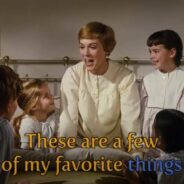Snapshots of Dementia: Scam Alert, Part 1
(Unsplash) “Turn it off,” I said, my voice shaking. “I just can’t watch that.” The YouTube video that caused me to speak to my daughter in such a direct way had a topic too familiar to all of us: dementia. As I recall, it involved two men who exposed scams, this one targeting senior adults who were living with dementia. The investigators were doing a great job of ferreting out those responsible and (I presume) helping bring them to justice. That wasn’t the problem, of course. The problem, for me, was the deliberate way they pointed their attacks toward someone LWD, easily confusing and misleading them. And the real problem—the reason I couldn’t watch anymore—was that this happened to our family too. More than two years before Tom’s official diagnosis with dementia, while the neurologist was still telling me he was fine, we experienced one of the worst seasons of our lives. We were already going through marriage counseling after he confessed some very inappropriate activity (not a physical affair). What should have been one of our happiest times, with one of our daughters getting married that summer, quickly become just the opposite. Tom was barely doing the required homework for our marriage counseling. In fact, he often seemed disinterested when we met (via Zoom, although the pandemic was a few years away) with our counselors from Pure Desire Ministries. The loneliness I often experience now while married to someone LWD is nowhere near as great as what I felt then. I cried nearly every day, sometimes sobbing for much of my forty-minute drive to and from work. Why did my husband no longer seem to care about our marriage? Over that summer and fall, at the same time as we were going through counseling, complete with accountability partners to whom Tom reported every week, he was giving away our money, several thousand dollars at a time. The first time, while out of town, he had money wired from our bank to share with a scammer. Later, he used credit to buy gift cards, also shared with a scammer. And here’s one of the worst parts: because he was the primary money manager, I had no idea any of this was happening. I had noticed his increasing struggles, and (at my insistence) Tom had a neurological workup including an MRI, but I wasn’t yet in relentless pursuit of a diagnosis. In fact, it took almost a year after that for me to connect the problems in his behavior and in our marriage to his dementia. Like many people, I thought of dementia as primarily a memory issue. Tom had some memory problems, but he also had many other behavioral symptoms that he still exhibits today. Even way back then, while he was still holding down his full-time job as a worship pastor, he showed symptoms such as apathy, obsessive behaviors, hiding and hoarding items, and an increasing lack of logic and planning ability. It seems so obvious now, when I can look at a list of behavioral dementia symptoms and recognize how well his fit the pattern. But back then, some of his actions upset me so much that I don’t know if I could have put it all together even if I’d known more. The financial concerns came to...
read moreSnapshots of Dementia: My Favorite Things
(Screengrab, “My Favorite Things,” YouTube/Fox Family Entertainment) When Julie Andrews sang it, it sounded like so much fun: “I simply remember my favorite things/ And then I don’t feel/ So bad.” When you are living with dementia, can’t think much beyond the moment, and have a memory that grows shorter by the day, you remember your favorite things—and stick with them. In Tom’s case, as in the case of many people living with dementia, the familiar and favorite have become the essential. For him, “favorite things” include: Music: Since Tom was a professional musician and worship pastor, music comes first. Although he doesn’t listen to music as often as before he was LWD, he still loves it. He owns about 30 Christmas CDs, but this year, he played only two—multiple times. If you get him talking about jazz, he’ll want to share YouTube clips of favorite bands, although he’ll need help to find them. His smaller memory has compressed his list of favorites, but he still knows what he likes. Radio: Tom has a regular weekday and weekend morning regimen of radio programs. We’ve lived in South Carolina for more than three years, but he still insists on streaming the same Orlando NPR station he enjoyed on his morning drive to work. On Saturdays, after he’s finished with the NPR lineup, he listens to children’s programs on a California station—the same one we listened to every Saturday when we lived in Oceanside many years ago. Television: His television tastes vary a bit more than his radio ones, but not much. For a while, he would watch repeated clips of The Carol Burnett Show and a few other childhood favorites. For the past couple of years, he’s only watched a few new programs. We’re now on the fourth round of one of his favorite shows, Blue Bloods. He enjoys the repeated episodes as if watching them for the first time—because with such a short memory, he is. Books: With my help, Tom still checks out books from the library, reading mostly digital books on his iPad. As with television, he understands largely in the moment and can’t often explain or describe the content. Except for his morning Bible reading, he doesn’t read every day, and he reads and rereads only a few favorite authors and books. Electronic Games: Before his diagnosis, I despaired of the time he spent playing what seemed like mindless games on his laptop. Now, he plays games on his iPad, mostly a golf game he’s enjoyed for years (although he now plays at a much lower level) and a series of word games (with frequent help from me). These all cause a certain level of frustration, but he returns to his favorites every day. Clothes: If I weren’t watching, I’m sure Tom would wear the same clothing all week, partly because he would forget to change and partly because he prefers his favorites. I still choose my battles and don’t insist that he vary his wardrobe too much, but after discovering that he often hangs up dirty clothes, I keep a watch on the closet. Foods: These range from Wendy’s Frostys to cheeseburgers to his beloved coffee. He doesn’t get upset when I switch up our menu, but the most familiar remain his favorites. The biggest change while LWD is that,...
read moreSnapshots of Dementia: The Kindness of Strangers
(Unsplash) “You can’t leave that sticker on a package.” The postal clerk across the counter from me may not have meant it as a rebuke, but nonetheless, I felt scolded. “It tells us the contents are dangerous, and we can’t let it go on a plane.” I knew right away what she meant. After I’d sealed up my package (a recycled box from the company that promises to deliver smiles), I noticed some stickers left over from its previous use. I pulled off the ones I could and used a black marker to scribble over the others. Good enough, right? Wrong—as my postal clerk friend had so quickly informed me. Great. Just great, I thought. I’m not only late sending this off to Mom, but now I’ll be even later. I knew the “danger” sticker lay under the package-sealing tape I’d used on the box—the roll of tape that remained at home, along with the tools I would need to remove the tape and sticker. I moved to reach across the counter and retrieve my box, but the clerk had more to say. “If it can’t go on a plane, your package won’t get there when it’s supposed to.” I get it, lady, came my somewhat uncharitable thought. I know what I need to do. Please, just let me take it home. But no, she had still more to tell me. “Here, let me try to take it off for you,” she offered. “There’s no reason for you to have to go all the way home.” What? Kindness? I wasn’t expecting kindness—especially when I’m the one who made the mistake. She tugged at the edge of the offending sticker, ultimately getting out a pair of scissors to unseal the package, then using her fingernails to pick at the sticker until all the pieces had been removed. Shen then pulled out a roll of tape, resealed my box, and prepared to send it on its way. “I really appreciate you taking the time to do this,” I told her. “My husband has dementia, and I’m his caregiver, so it’s a big deal anytime I can get to the post office. Thank you so much for taking care of this so I don’t have to make two trips.” “I’m so sorry,” she said. “I was a caregiver for my husband for five years before he died.” She had more words for me about the stresses of caregiving while she finished getting the package ready for its journey. All this took a few extra minutes of her time—minutes she may not have had, considering the busy-ness of the post office—and I appreciated her kindness so much. “I never do those [USPS] surveys,” I told her as she handed me my receipt, complete with the opportunity to participate in a survey. “But I’ll do one this time and mention how kind you were.” “That’s nice of you, but really, don’t worry about it,” she said. “But I want to.” “Well, if you get home and you don’t have time, just forget about it. I know what being a caregiver is like.” And then she gave me a final word that seemed unusually thoughtful: “I’ll keep you in my prayers.” I didn’t find time to do the survey for a few...
read moreSnapshots of Dementia: Resist the Urge to Explain
Gerd Altman on Pixabay My fellow writers will know what I mean by RUE. Our writing bogs down when we explain rather than letting a story happen. As we grow in our work, we learn to Resist the Urge to Explain. As with many parts of my life, I’m finding connections for that rule with dementia too. More and more, I resist the urge to explain. And as with many parts of my life, it’s not always easy. When Tom and I were newlyweds, his extroverted personality and penchant for embellishment often resulted in him telling a story (sometimes in a sermon) that, for me, pushed the boundaries. I came to understand that he was telling the truth as he saw it, which often looked very different than it did to me. Now that he is living with dementia, the difference between our viewpoints has grown even more profound. His physical sight is changing—he can look right at something and miss it—but so is his perspective, the way he interprets the world around him. At an earlier point in our dementia journey, he had trouble remembering recent events but not those from the past. He could tell stories from his college days or the early years of our marriage almost perfectly. In fact, he sounded more “himself” when sharing these old stories than at almost any other time. Now, he still tells stories he’s told many times, but they sound different. He often puts pieces of one into another or mixes up the details. It bothers me to hear these stories—many of which are my stories, too—with people, situations, and circumstances shifted around, left out, or otherwise changed. I find myself listening to his story with one ear and telling myself the true story with the other. But ultimately, those details don’t matter. I’m learning to resist the urge to explain. I still try to let Tom do the things he can do. But this tendency to see an alternate reality can make that challenging. We faced this problem a few months ago when I realized he had been calling the wrong barbershop. We would arrive for his appointment and find the shop closed or the owner with no record of his call. It took about three rounds of this before I realized what was happening, and he still made one more appointment at the wrong shop. I only caught it when I heard a male voice responding to his call (the barbershop he prefers has only one barber, a woman). Once again, his reality looked different than mine. As much as I want him to carry out the tasks he can, he just can’t make appointments anymore. But I still let him go in for his haircut on his own, carrying cash I give him right before he enters the shop. And I resist the urge to explain. Yesterday, when he spilled his coffee all over my newly mopped floor, I told him, “We need to go pick up your travel mug.” The missing mug has a top with a mouth that seals shut. He left it in a nearby church where we’d rehearsed for our Christmas musical. Although I’d emailed to ask about it, I’d never taken time to retrieve it. In its absence, he...
read moreSnapshots of Dementia: Sudden Impact
(Paul Barlow, Pixabay) For much of this year, we’ve rocked along in our dementia journey without major obstacles or downturns. In fact, I realized the other day that Tom hasn’t had a major fall for a number of months. I don’t know if we can attribute that to an improvement in his balance, to his now-regular use of a walker, or to something else, but I’m grateful. However, I do recognize that his general direction is not up or even forward but steadily downward. At times, the force of what’s happening slams me right in the face—or, more accurately, in the heart—with what I can only describe as sudden impact. This happened just two weeks ago when we were rehearsing our Christmas presentation. During our rehearsals, my mind kept returning to only a few years ago. Every December, Tom would throw all of his musical, physical, and spiritual energy into directing a full-blown Christmas production. Yes, I was proud of and grateful that this year, he sang a solo. But when I allowed myself to compare that to everything he used to do, the tears threatened to overflow. As we presented the Christmas music for the audience, I asked God to help me concentrate on the music, the message, the moment—so I could rejoice rather than weep. And thankfully, Tom never knew anything otherwise. Another sudden-impact moment happened just last week when a research coordinator from Emory’s Neurology Department met with him via Zoom to conduct some cognitive testing. In the past, doctors used these tests to help determine their diagnosis (or, for years, their lack of one). Now, the tests help assess how his dementia is progressing. Some relate to memory, and others, to overall cognition. When we were desperately seeking diagnosis, I wanted the testing to reveal deficits. Back then, his scores were high, remaining in the normal range even when his behavior showed obvious problems. But during last week’s testing, I realized that I wanted him to remember more or perform better than he could. The sudden impact came when I realized he couldn’t follow the simple instructions for some of the tests. Of course, I had to connect my laptop to the internet and set up the Zoom call; that would have been far more than he could do. In the past, Tom refused cognitive testing once or twice because he had taken these tests so often. Now, he simply accepts it as something he’s supposed to do—one more event that came with a sudden impact. We don’t have the full report yet, but the preliminary notes said the testing showed deficits in multiple areas. This shouldn’t have been news, but I still felt its sudden impact. This week, I experienced yet one more sudden-impact moment. For the past few years, Tom has enjoyed watching The Voice. The combination of musical talent and silliness fits his interests and attention span well. This season’s finale took place Monday and Tuesday, but we only watched part of Monday night’s show and none of Tuesday’s. Tom still likes to control the remote (raise your hand if this surprises you), although he needs more and more help to use it appropriately. We waited until tonight to watch Tuesday’s final episode, but he clicked on Monday’s night’s show. I knew...
read more







